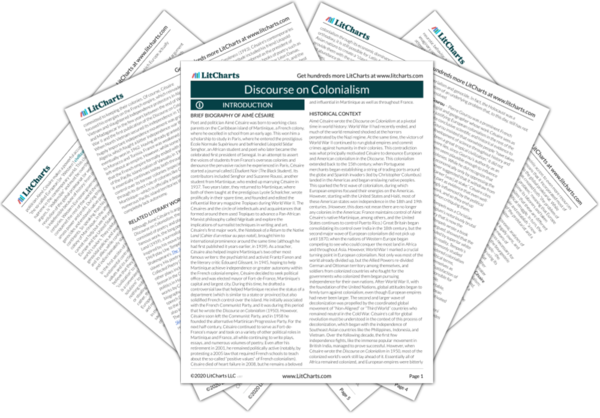Ethnography Quotes in Discourse on Colonialism
His doctrine? It has the virtue of simplicity.
That the West invented science. That the West alone knows how to think; that at the borders of the Western world there begins the shadowy realm of primitive thinking which, dominated by the notion of participation, incapable of logic, is the very model of faulty thinking.
And the museums of which M. Caillois is so proud, not for one minute does it cross his mind that, all things considered, it would have been better not to have needed them; that Europe would have done better to tolerate the non-European civilizations at its side, leaving them alive, dynamic and prosperous, whole and not mutilated; that it would have been better to let them develop and fulfill themselves than to present for our admiration, duly labelled, their dead and scattered parts; that anyway, the museum by itself is nothing; that it means nothing, that it can say nothing, when smug self-satisfaction rots the eyes, when a secret contempt for others withers the heart, when racism, admitted or not, dries up sympathy; that it means nothing if its only purpose is to feed the delights of vanity; that after all, the honest contemporary of Saint Louis, who fought Islam but respected it, had a better chance of knowing it than do our contemporaries (even if they have a smattering of ethnographic literature), who despise it.
No, in the scales of knowledge all the museums in the world will never weigh so much as one spark of human sympathy.












